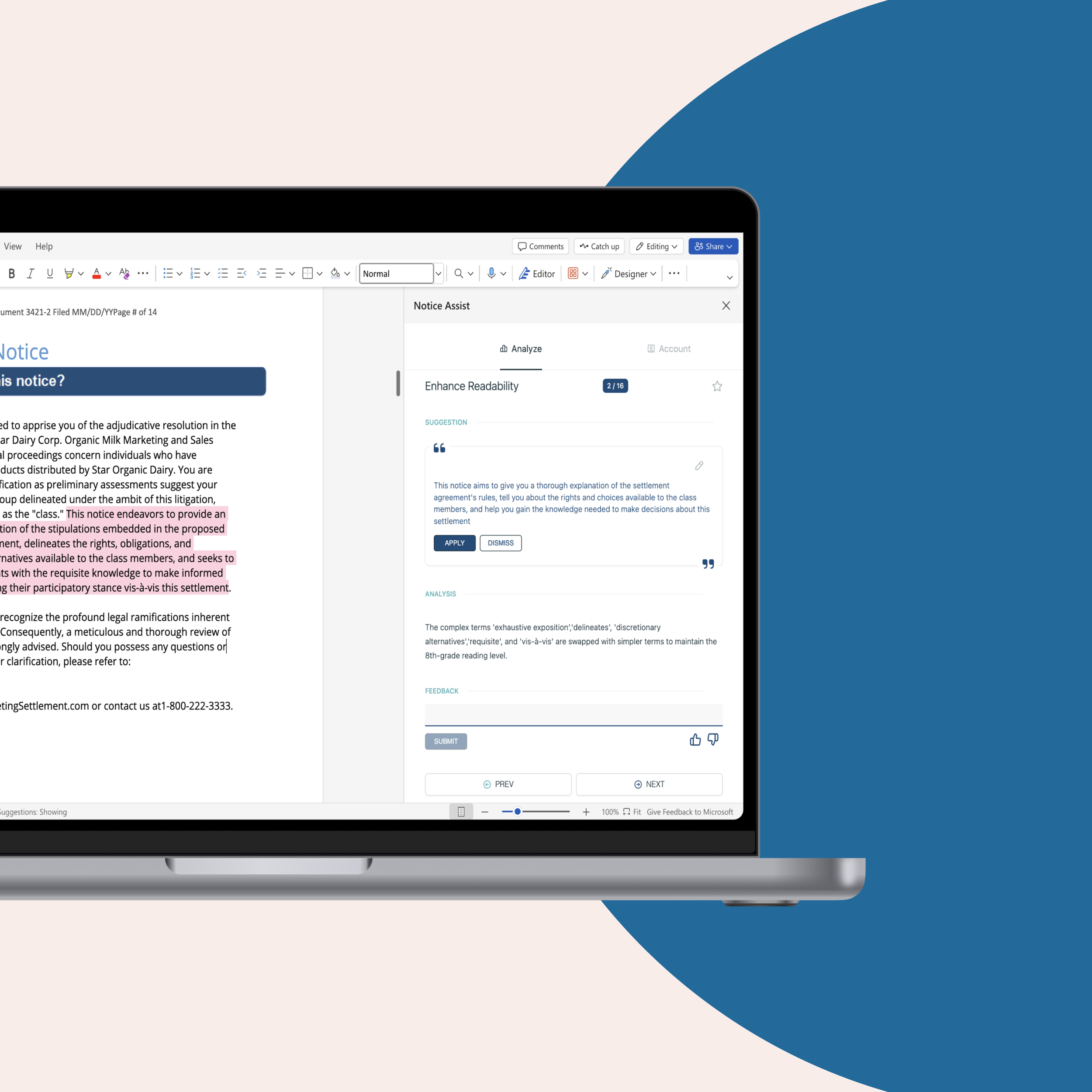The Underground Guide To Class Action Slang (part One)
Jocelyn D. Larkin: Executive Director, The Impact Fund
Over the past half-century, class actions have changed the world for the better: desegregating schools and workplaces, ensuring clean air and water, and exposing unsafe products and corporate fraud. But, have you considered their impact on the English language? Class actions have spawned some inventive slang, which can be bewildering to practitioners new to the field, much less to ordinary folks. We’re here to help with this, the Impact Fund Class Action Dictionary.
Reps – No, this does not refer to the number of squats or bench presses that you need to do before the class certification hearing. “Reps” are the class representatives, also known as class plaintiffs or named plaintiffs, who serve as the leaders on behalf of the class.
Cert – The Holy Grail for class plaintiffs, this refers to class certification, or more specifically an order granting class certification. This is confusing because “cert” is also short for “certiorari,” which refers to an order from the U.S. Supreme Court, agreeing to hear an appeal. You definitely don’t want SCOTUS to grant “cert” on your “cert.”
CAFA’ed – This word has nothing to do with your excessive coffee intake. To be “CAFA’ed” means that your class action, filed in state court, has been removed by the defendant to federal court under the so-called Class Action Fairness Act (“CAFA”).
MDL’ed – After your case gets CAFA’ed, it can then get MDL’ed. A case is “MDL’ed” when it is transferred from one federal court (“home”) to another federal court, and then consolidated with other similar cases for pre-trial proceedings as part of the federal court’s Multi-District Litigation program.
“Pick Off” or “Whac-a-Mole” - The strategy of a class action defendant to buy off the class representative with an offer of full relief, with the intent of thwarting the class action. It becomes “Whac-a-Mole” -- the ubiquitous arcade game with the giant mallet for bashing moles as they pop-up -- when successive class representatives are added to the case and then “picked off.”
Pile On – Following the filing of a class action complaint, other lawyers sometimes file similar class actions, thereby “piling on.”
Teamsters Hearing - Despite how it sounds, this is not a proceeding overseen by sturdy long-haul truckers. This bit of vernacular refers, instead, to the hearings for individual class members following a finding of class-wide liability, in which his or her right to relief is adjudicated. It comes from the U.S. Supreme Court decision in Int’l Brotherhood of Teamsters v. U.S., 431 U.S. 324 (1977), a seminal employment discrimination case brought by the Justice Department (not even a class action) challenging the exclusion of minorities from line driver positions. The Supreme Court outlined a two-stage trial plan in which liability was heard first, followed by individual remedies hearings in which each class member was presumed to be the victim of the pattern of discrimination.
Lots of the best slang refers to aspects of class action settlements and those who object to them. Here goes:
Reverse Auction – We have Professor John Coffee to thank for this colorful bit of class action dialect. He coined this term to refer to the insidious practice of a defendant, faced with similar class actions in multiple jurisdictions, shopping for plaintiffs’ counsel willing to accept the least class relief in exchange for the broadest possible release. It’s a “reverse” auction because the settlement goes to the “lowest” bidder. Thankfully, Professor Coffee’s identification of the practice has heightened the awareness of the bench and bar to the phenomena and discouraged its proliferation.
“Clear Sailing” Agreement - This one sounds nice, doesn’t it? It invokes a lazy day on the bay, the sun shining and a mild breeze blowing. Well, not all judges see a “clear sailing” provision as entirely benign. The term refers to an agreement in a class action settlement in which the settling defendant promises not to dispute in court a request for attorneys’ fees by class counsel, provided that the amount of the fee request falls at or below a negotiated figure. While a “clear sailing” agreement can provide some measure of predictability for the settling parties, some judges see it as a “red flag” that a settlement may be a product of collusion.
Lodestar – While not exactly slang, it is part of the lexicon. Lodestar refers to the method of calculating attorneys’ fees for class counsel where the actual hours worked are multiplied by a reasonable hourly rate, based on the market for comparable services. That product may then be increased or decreased (the “multiplier”) based on various case-specific factors to reach a final figure. This method is often used in statutory fee-shifting cases.
Common Fund – Another attorneys’ fees calculation methodology. Class counsel is awarded a percentage of a fund created by the resolution of the class action.
Professional Objector - While objectors can come in all stripes, this term refers to lawyers who make a living by filing objections to class settlements for the purpose of exacting a payment in exchange for dropping the objection or an appeal from the order approving the class settlement. See Greenmail, below.
The “Blow Up” Provision – This is a provision in a class action settlement agreement that allows the defendant the option to back out of the deal or “blow it up” if a negotiated number (or percentage) of class members opt out of the settlement. The rationale for such provisions is easy to understand. If a defendant is settling a class action to buy peace at an agreed price, a large number of opt-outs that must be separately resolved with further litigation may upset the economics of the bargain. Because of the risk of Opt Out Farmers (see below), the specific terms of the “blow up” provision may be filed with the court under seal.
Opt Out Farmer - This term refers to a lawyer who “harvests” class members willing to opt out of a class settlement, generally based on the assumption that the farmer-lawyer can exact a better deal for them outside the terms of the class settlement. The larger his or her crop of opt-outs, the more leverage the farmer has. When too many class members opt out, it may trigger a “blow up” provision (see above), which gives the defendant the ability to back out of the class settlement. Alternatively, the opt out farmer will negotiate a separate deal for his or her clients together with an attorneys’ fees premium.
Green Mail – This term refers to the payment made to a professional objector in exchange for the objector’s agreement to drop the objection or the appeal of an order approving a class settlement. The term is borrowed from the world of mergers and acquisitions, where such payments are also know as a “bon voyage bonus” or a “goodbye kiss.” Ick.
OK, while class actions have done a lot of social good, their impact on the English language has not been entirely positive. Not by a long shot. Take the requirements of class certification. A perfectly simple and friendly word like “numerous” (are there enough class members for a class?) is transformed into the pompous and bloated word, “numerosity.”
It gets worse. A class representative must have claims typical of the class and be an adequate representative. Try explaining to your client that, thanks to her, “typicality” and “adequacy” failed. Cue the lawyer jokes. Honestly, would Pantene advertise that its shampoo would ensure hair “manageability?” I think not. “Ascertainability?” I rest my case.











